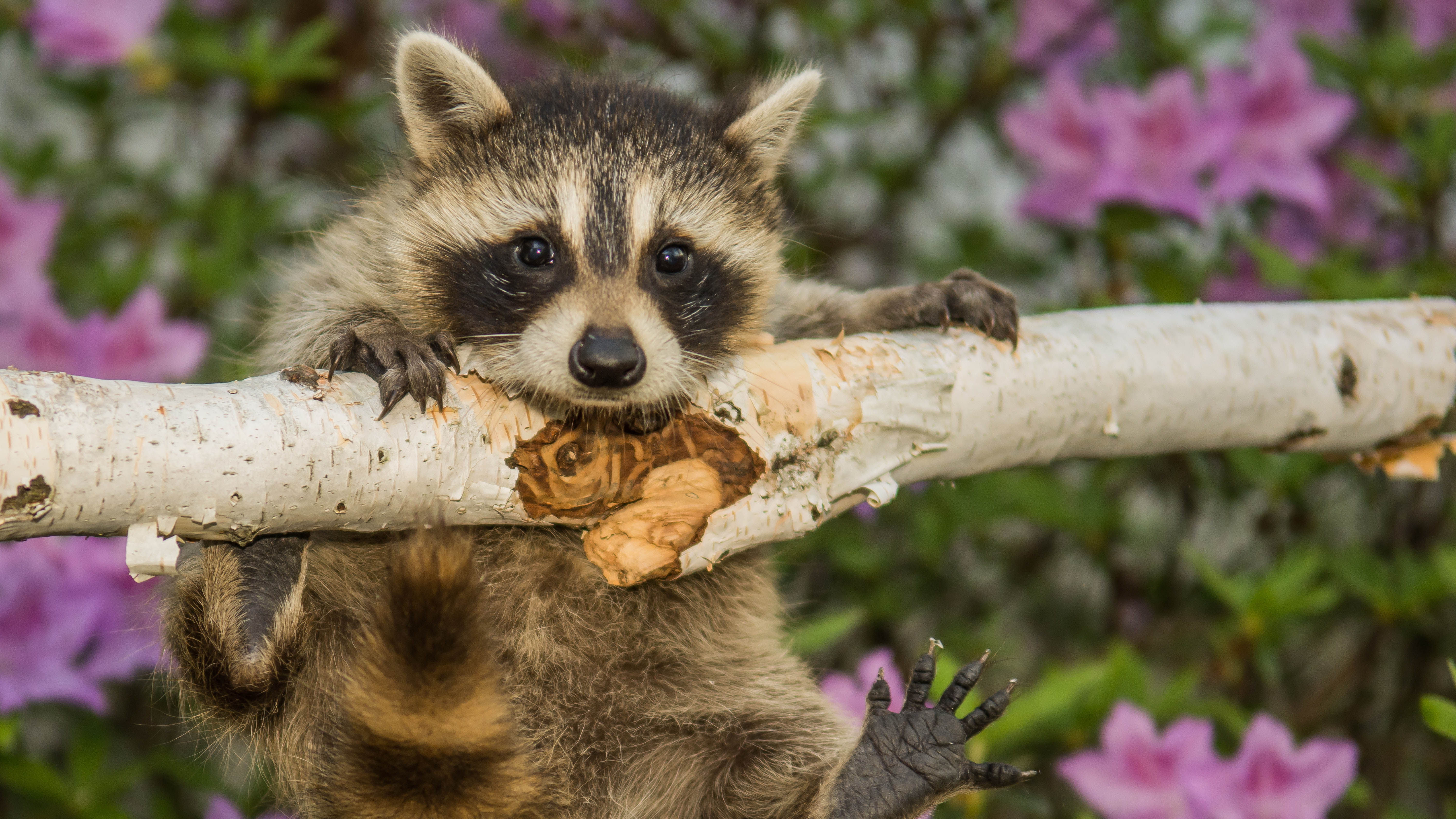
Raccoons might look cute and harmless, but they can cause havoc in your yard. And if you suspect any activity, these uninvited guests are on the hunt for one thing — food.
This ranges from fruit or berries that you might have growing on trees, seeds, grubs or even food scraps lying around. It’s no surprise that these mischievous, little mammals are known for scavenging through trash cans, in search of their next snack.
Not only can racoons dig up garden beds, ruin your flowers, and knock over trash bins, but they carry a host of diseases including leptospirosis, rabies, fungus and other bacterial infections. That’s why it’s important to know how to get rid of raccoons, by making your yard hygienic and less inviting for pests to return to your space.
Luckily, certain plants act as a natural, raccoon repellent, and will keep them at bay. Like most pests, raccoons have a strong sense of smell, and so you can keep them out by placing the fragrances that they detest around your yard. What’s more, these are chemical-free, and safe to use around children. Just beware that some of these plants are toxic to pets if ingested, so always be mindful where you place them where pets are running around.
So if you don’t want these furry bandits rummaging in your yard anytime soon, check out these plants to repel raccoons.
1. Rose Bushes
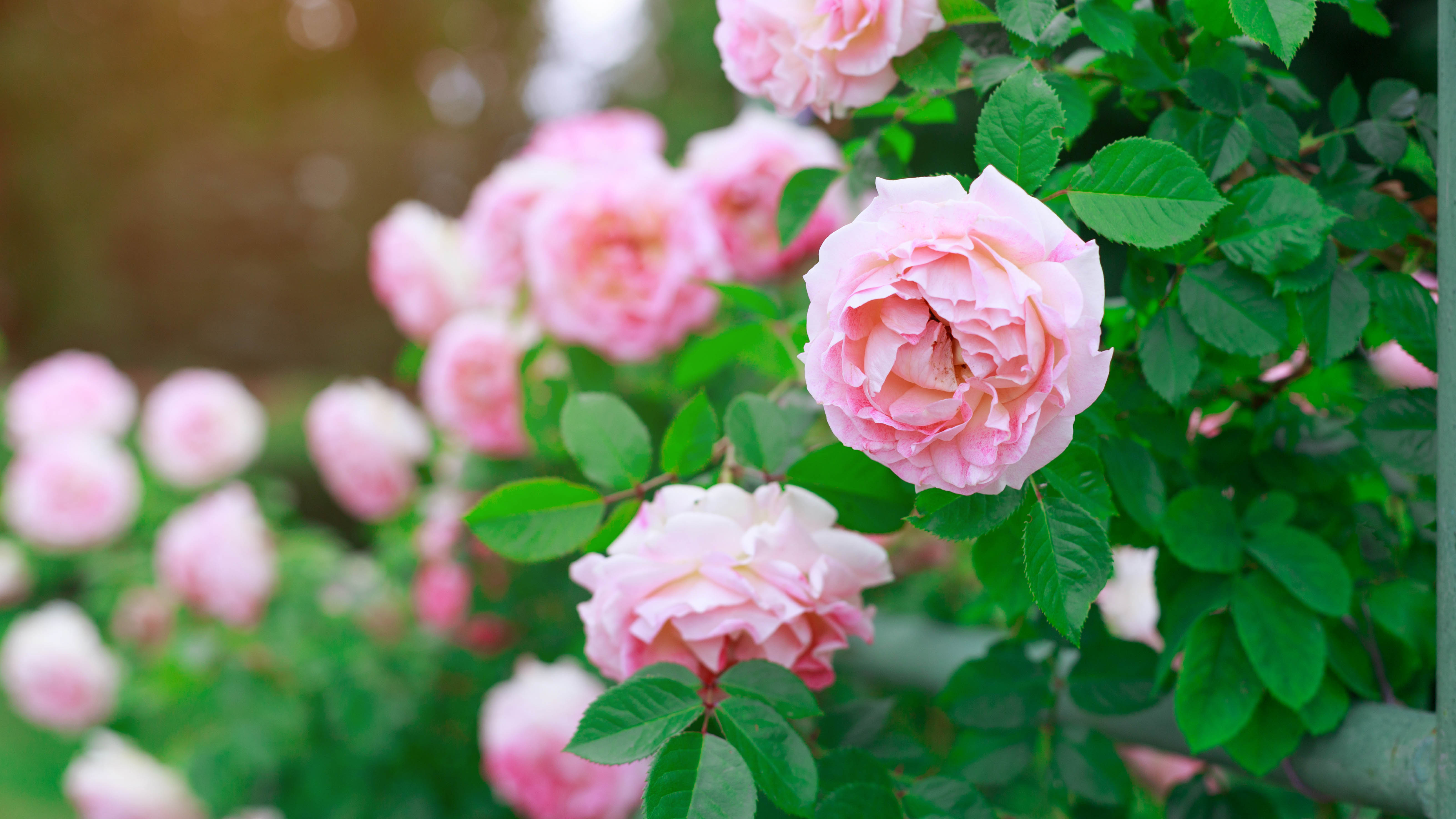
Roses are a favorite flower for many, and can instantly brighten up our yards and make it smell fragrant — but rose bushes are also unappealing to raccoons.
While we can enjoy the strong, floral scent, this is repulsive to raccoons, and keeps them at bay. Secondly, roses often have thorns or pointy bushes, which makes it uncomfortable for raccoons' soft paws to tread through. Both of these things make this plant a pretty, effective raccoon deterrent.
Consider planting rose bushes in your yard to ward off raccoons and other pests — plus, it will make a beautiful floral display. You may also be interested in when is it too late to prune roses — advice from a garden expert and what causes spots on roses and how to get rid of them.
2. Lavender
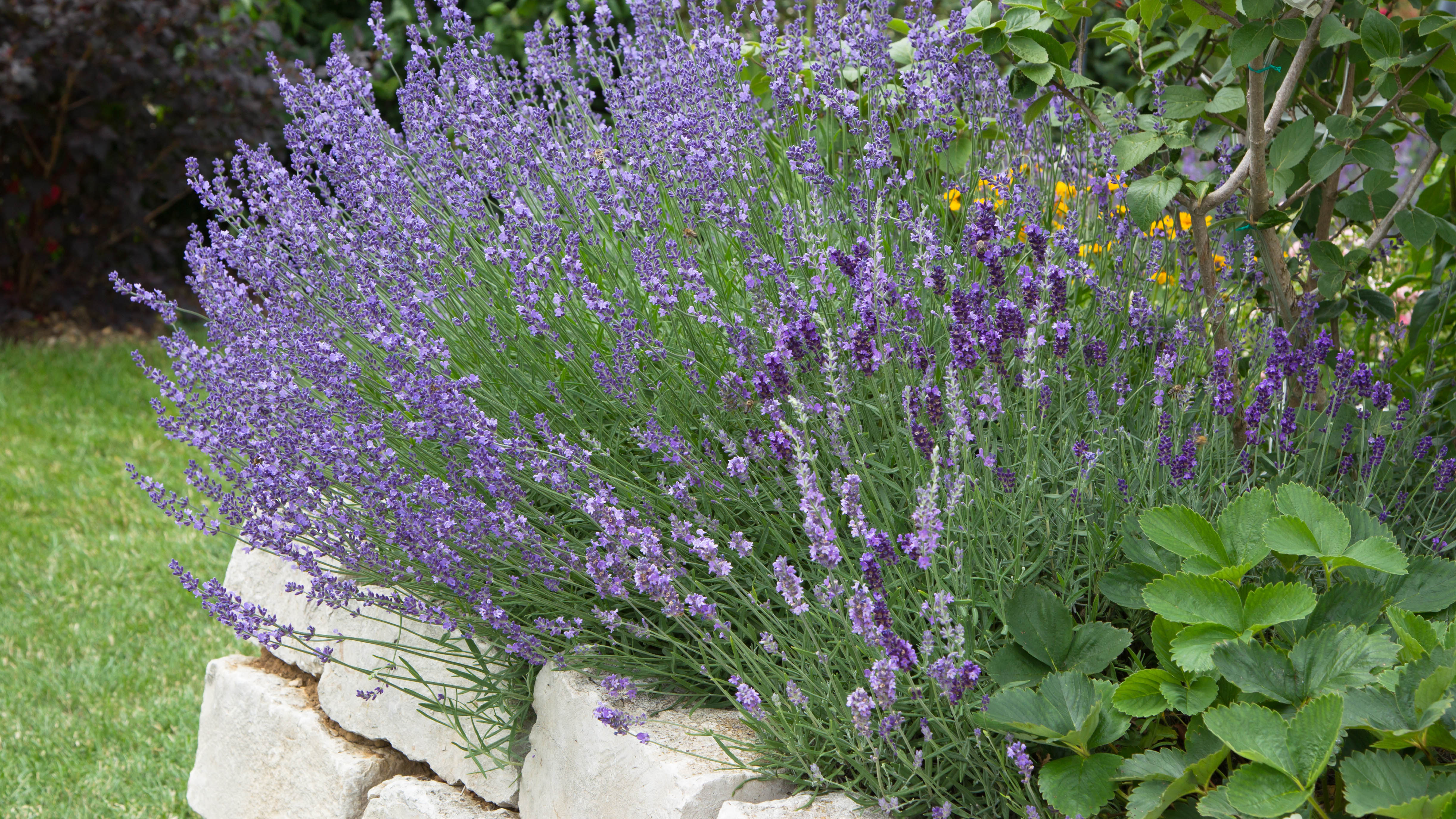
This popular, purple flower is well known for its distinct, fresh scent and calming properties. And while we might enjoy the lingering fragrance in our yards, the strong smell is overpowering for raccoons. Interestingly, it contains a non-toxic compound called linalool, which is an essential ingredient found in most pest repellents.
If you don’t have the space to grow lavender, you can place a few potted plants around the yard or in hanging baskets. Additionally, you could opt for spraying lavender essential oils around the yard to deter them.
Lavender is also known to keep mice and rats from invading your home, repel spiders, fruit flies and other common pests.
3. Mint Varieties
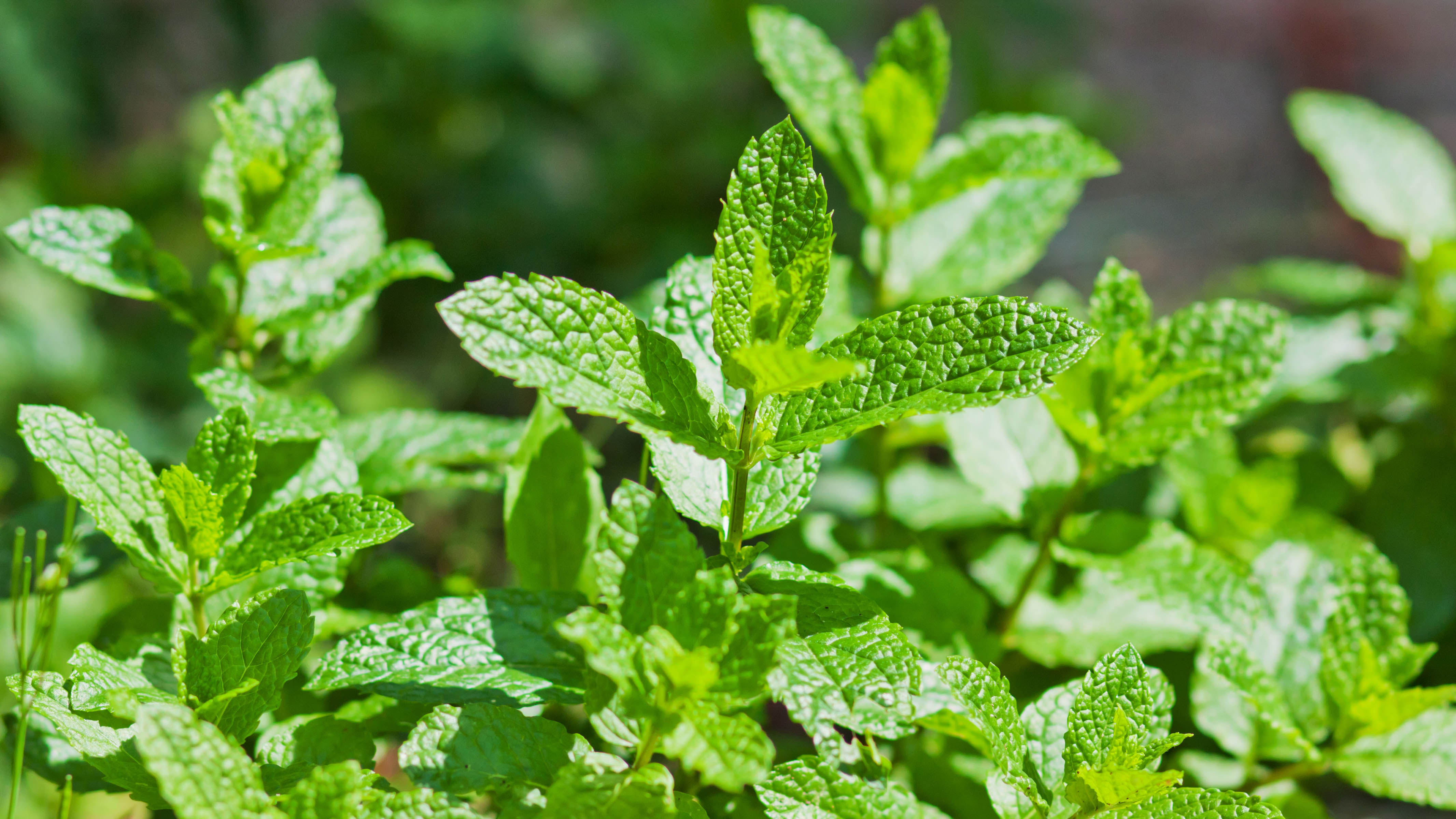
Other fresh scents that are repulsive to raccoons is the mint variety — particularly peppermint and spearmint, as these tend to be the strongest.
If you’re growing herbs, consider these top tips when growing mint, and place these zesty plants in pots around the yard.Just watch out for these 7 mistakes it’s all too easy to make when growing herbs.
Alternatively, you can mix a simple solution of two teaspoons of peppermint oil to a cup of water into a clean, spray bottle. Then, use the homemade solution to target the trouble spots or areas in the yard where you suspect raccoons are entering. The overwhelming scents should be enough to deter them from coming back!
4. Onions and Garlic
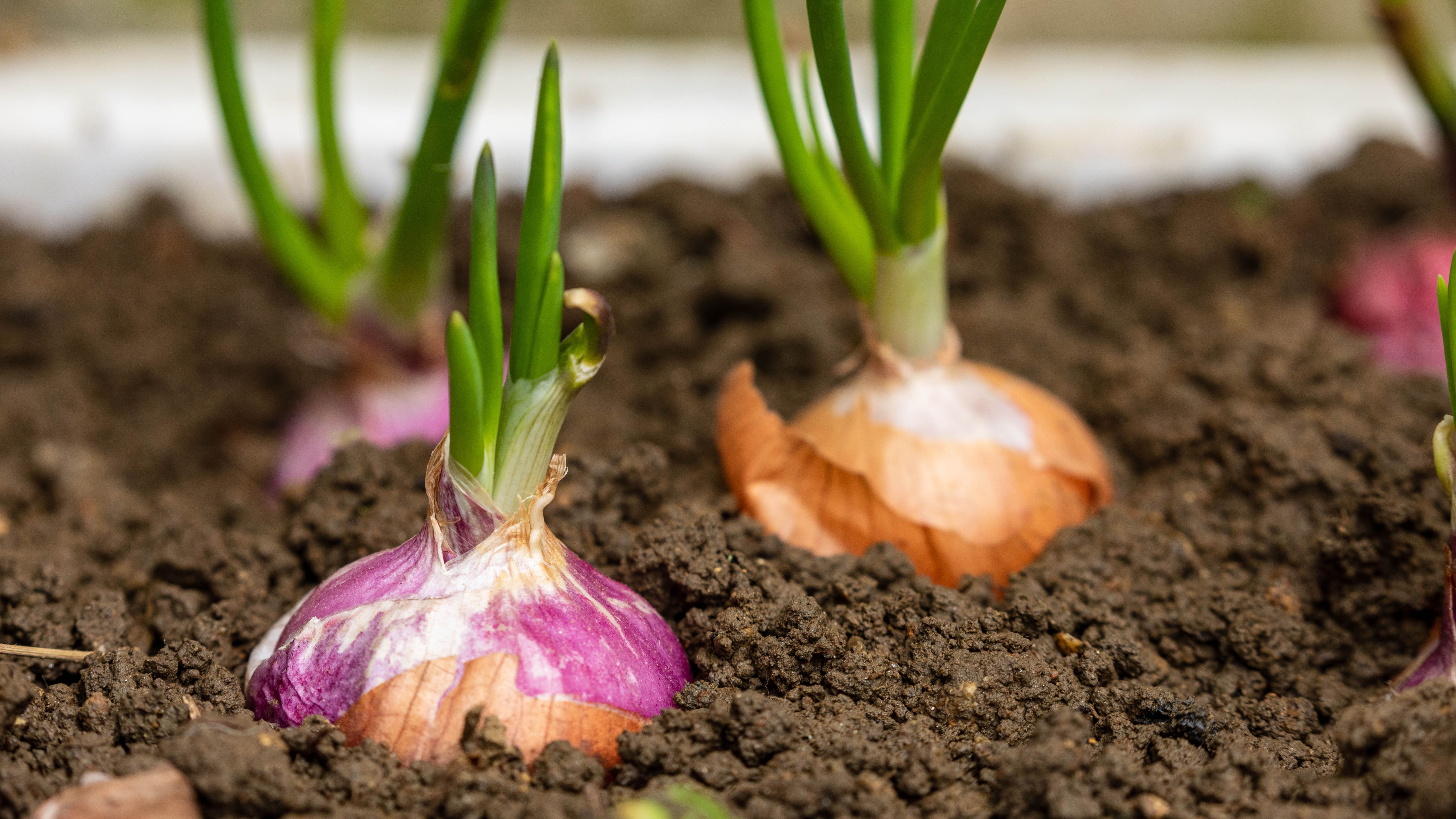
We all have garlic or onions in our kitchens, and it’s a staple ingredient for delicious meals. However, such fragrant smells are strong to raccoons and other common pests. This is thanks to their high quantities of sulfonic acid which gives off a pungent smell that snakes hate.
It’s easy to learn how to grow garlic from cloves in your backyard or in pots. Or if you don’t have the time to grow your own, you can make an easy garlic repellent. Simply take four or five cloves to make a puree, and add that to a pint of water in a spray bottle. Then, spray your solution around the yard to repel raccoons and other pests like rats and mice.
Alternatively, you can chop up both garlic and onions, mix them with rock salt, before sprinkling around the yard. These concoctions might make your home smell of garlic, but it will be worth it in the long-run.
5. Hot Peppers
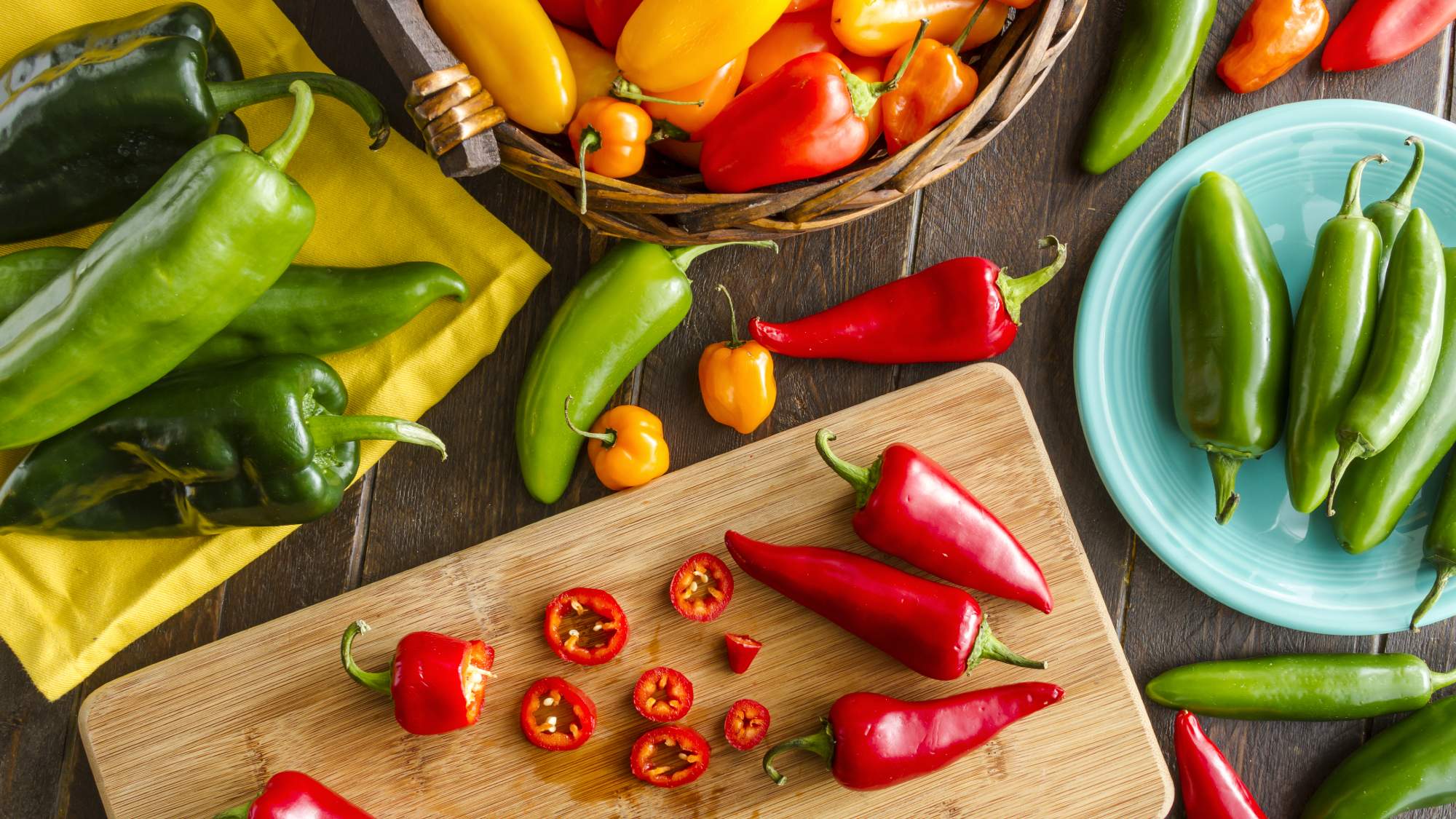
If you do enjoy growing vegetables, you might want to consider including hot peppers. In fact, hot peppers are one of the easiest ways to deter raccoons, as well as black pepper and cayenne plants. This is mainly because raccoons detest the scent or taste of capsicum, found in hot peppers.
Experts recommend that you plant hot peppers or place pots near the entryway of your yard to prevent raccoons from entering. Alternatively, if you don't want actual plants, you can sprinkle crushed, red pepper flakes around the garden or areas where there is more pest activity.
6. Globe 'Veitch's Blue' Thistles
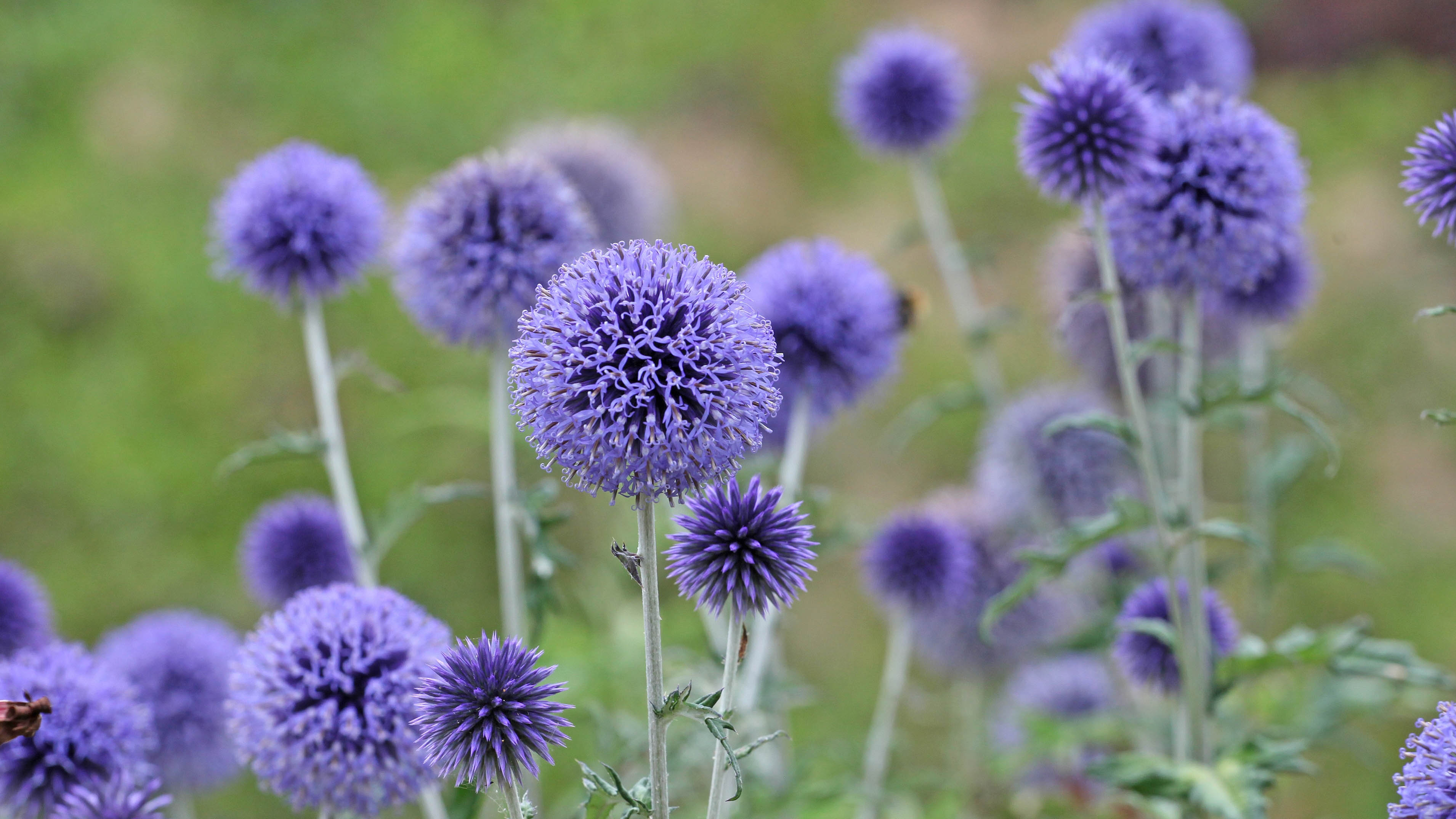
These violet, globe-like flowers may add visual interest to your yard, but are also the ideal, natural raccoon repellent.
Similar to rose bushes, globe thistles are known for their prickly thorns and rough textures, which are unappealing to raccoons who will steer clear of such plants. Experts recommend planting globe thistles throughout your yard, especially in areas that may be attractive to raccoons, such as garden beds or if you’re growing strawberries.
7. Geraniums
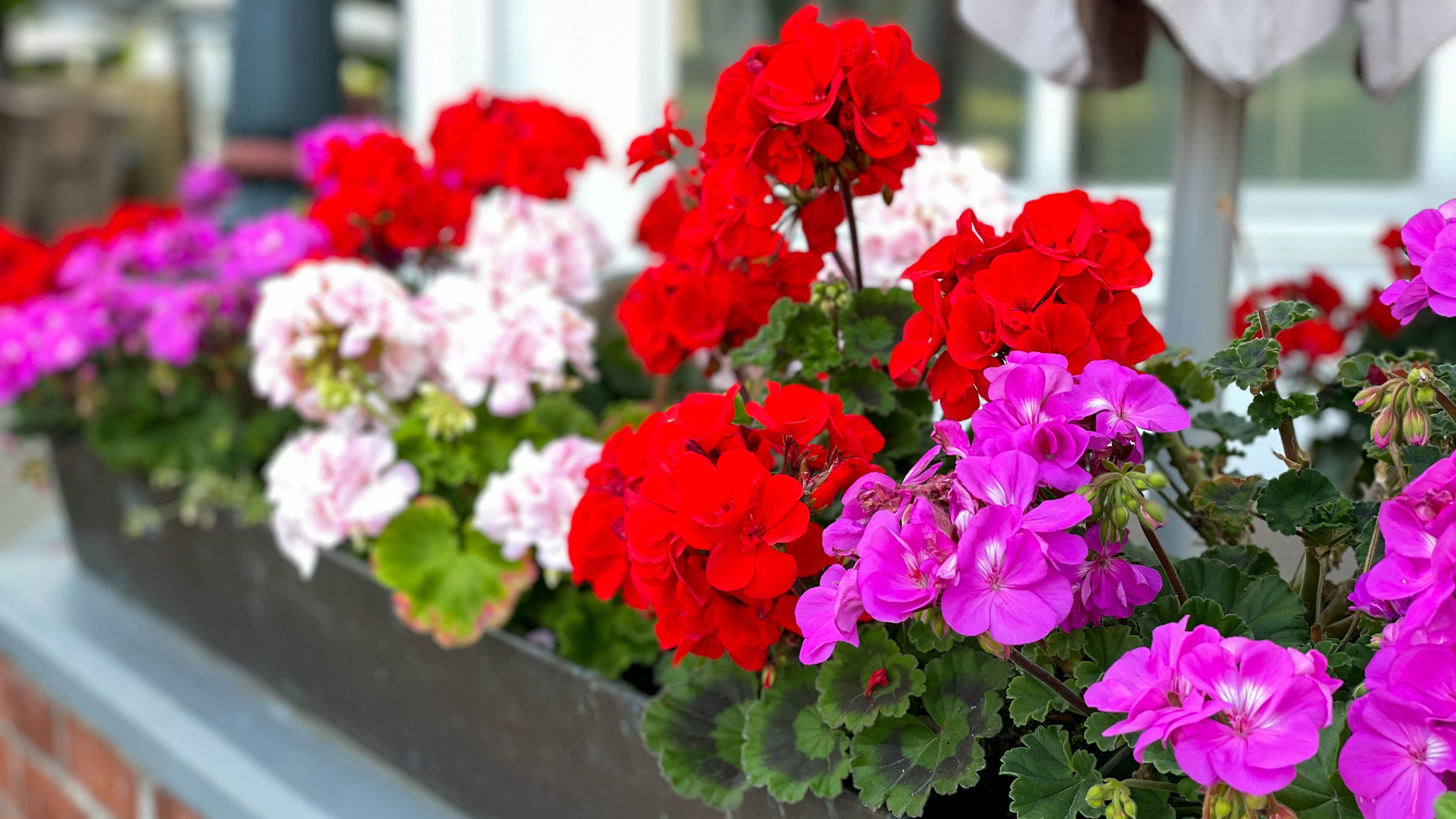
Finally, geraniums are a useful addition to raccoon-proof your yard. These fresh-smelling plants produce colorful blooms ranging from purple to red to pink. However, its strong, citrus and rose fragrance is too potent for raccoons — making them a great repellent.
Typically, geraniums grow best in USDA zones 3-9, ideally placed in full sun with moist and well-draining soil. These can flower from spring to fall, so you can benefit from the raccoon repellent properties for most of the year.
And if you have stray cats messing up your yard, geraniums are one of the 7 plants that repel cats, too.







